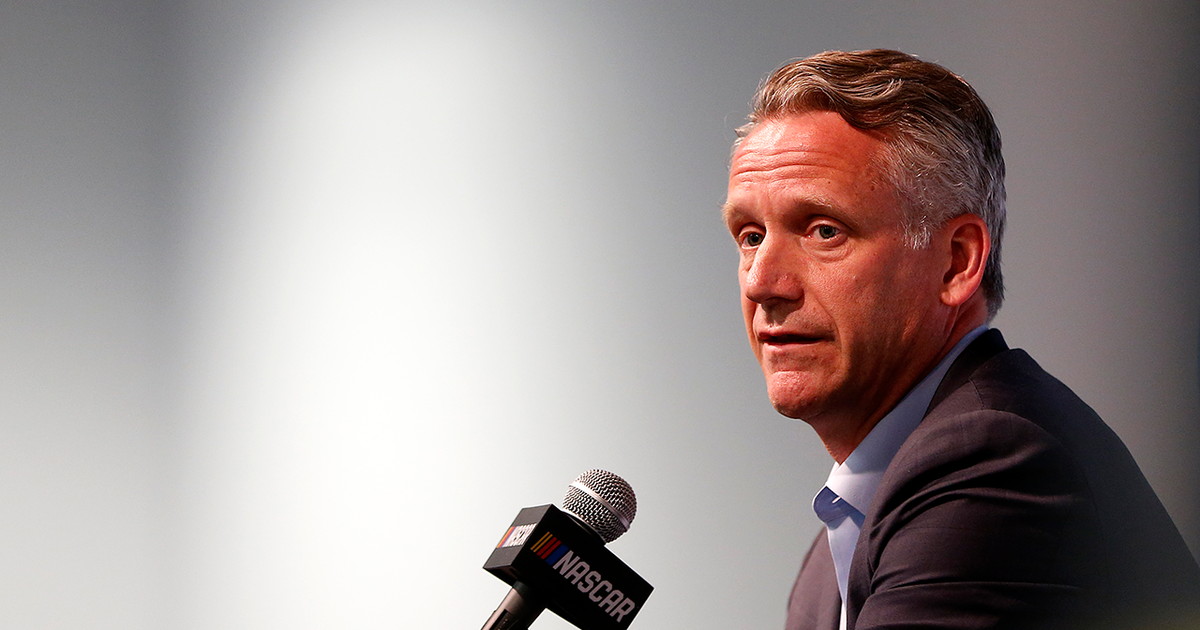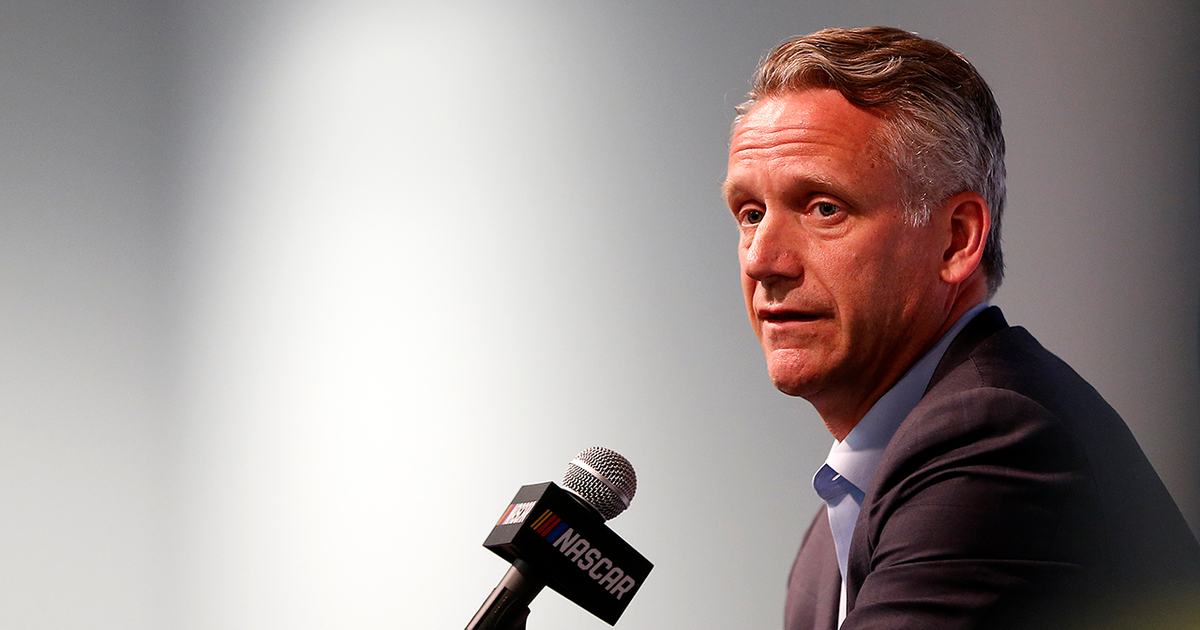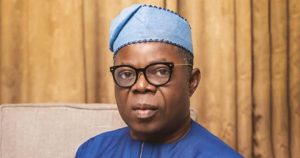NASCAR is keeping racing in perspective, all while planning to get back on the track


That was fun Sunday. A great distraction.
The eNASCAR iRacing Pro Invitational Series race on Sunday, won by Denny Hamlin, was cool to see, a great way to spend a couple hours and to try to forget the nervousness of a country plagued by the COVID-19 pandemic.
Fans were the winners Sunday: #nascar @NASCARONFOX https://t.co/Ig877xNFHZ
— Bob Pockrass (@bobpockrass) March 22, 2020
Now, back to the non-virtual world, one with lots of uncertainty for a NASCAR industry and fan base that is still wondering what the sport will look like when racing resumes.
“Most of the race shops have all been shut down. … We’re sitting home waiting just like everyone else is,” Hamlin said after the virtual race.
“That’s the thing is that people consider us immortals or superstars or whatever — we’re still doing the same things. We’re hanging out with our families. We’re staying in at the house, playing board games, whatever it might be, with our kids. We’re just in a holding pattern right now.”
What a swing of emotions for a 7 year old. And a dollar into the swear jar ?? pic.twitter.com/JB4Z2j3vai
— Denny Hamlin (@dennyhamlin) March 22, 2020
For now, NASCAR’s plan is to return with the May 8-9 weekend at Martinsville Speedway, a Mother’s Day weekend that is scheduled to feature the first full NASCAR Cup Series race under the lights at Martinsville, the sport’s shortest track. The support series is the NASCAR Modified Tour.
But whether it will be back racing May 9 is still somewhat uncertain.
“We’re concentrating on getting back to racing at Martinsville,” NASCAR President Steve Phelps said last Tuesday in his only news conference following the postponement of races. “We’ll have to do scenario planning that will look different than that.
“Right now, our priority is to get back to racing.”
— eNASCAR (@NASCAR) March 17, 2020
There is a reason Phelps has that as a priority: the NASCAR eco-system is designed around revenue based on a 36-race schedule. While other sports have more protections for an interruption in the season – TV deals often include clauses for payments even if games are postponed because of the potential of a labor dispute causing a lockout or strike – there is virtually no money flowing if there is no racing.
Teams get paid five business days after a race (tracks get their television revenue 10 days after a Cup race), and many teams need that to pay employees. Their sponsors also might request to defer payments for future races until the ones postponed are run. While no team would go on the record saying they have furloughed employees, at least two Cup teams are believed to already have done so for at least a month. Some small teams in the NASCAR Xfinity Series and Gander RV & Outdoors Truck Series teams also have had to lay off, at least temporarily, crew members.
NASCAR hasn’t announced any plans to help teams finance their way through the crisis, and if all races get run, that certainly would help teams make up for the lack of cash flow in March and April.
“Are we concerned about teams broadly and their financial health? Of course we are,” Phelps said. “We want to make sure that each of our teams gets through this, each of our stakeholders in the industry gets through this crisis as well as we all can.
“[There are] lots of things on the table – no specifics at this point that we are prepared to discuss.”
NASCAR has postponed races through the first weekend in May (Dover) … That would be Atlanta Homestead Texas Bristol Richmond Talladega Dover — all races postponed with the hopes they eventually will be run with fans. #nascar @NASCARONFOX
— Bob Pockrass (@bobpockrass) March 16, 2020
NASCAR reportedly has a good idea of how it wants to reschedule the seven postponed races – Atlanta, Homestead, Texas, Bristol, Richmond, Talladega and Dover – but wants to see how the coronavirus crisis unfolds before committing to a revised schedule. It doesn’t want to look insensitive to those that are suffering by talking about the resumption of racing.
The Cup Series has two off-weekends in the summer it likely would use. It also could try mid-week races, something it has wanted to do but no one in the industry seemed ready to come up with a plan to mitigate the risk of a potential significant decrease in admissions and camping revenue. It potentially could do doubleheader weekends or even move a race from a venue if for some reason scheduling works better.
NASCAR wants its 10 playoff races – Darlington, Richmond, Bristol, Las Vegas, Talladega, Charlotte road course, Kansas, Texas, Martinsville and Phoenix – to remain the same. That means all the postponed races will have to occur before Labor Day unless NASCAR moves the entire playoffs off their original dates, which really wouldn’t be too much of an issue except for Darlington’s tradition is Labor Day and many of the venues already are on the brink of racing at a time when it could have cold weather.
Phelps says they would like to keep the playoff portion in tact asa far as rescheduling. No specifics on how things will be rescheduled. #nascar @NASCARONFOX
— Bob Pockrass (@bobpockrass) March 17, 2020
Phelps reiterates the goal is to get postponed races completed before the 10 playoff races start. #nascar @NASACARONFOX
— Bob Pockrass (@bobpockrass) March 17, 2020
No decision likely will be best for everyone. A slew of Wednesday night races might be tough on smaller teams with limited equipment. Certain tracks draw fans from a further distance away, so those tracks would benefit from a weekend race — but that might not fit into the travel times needed for NASCAR and the teams to move their equipment from track to track.
“It’s understanding what is available to us,” Phelps said. “It’s understanding the races that we’ve had to postpone and what is the best way to get them fit back into a schedule.
“We’ll take a holistic view of what it is, not specifically how are we going to prioritize one versus another.”
Under normal circumstances, NASCAR would be finishing up the 2021 schedule over the next month and also closely monitoring production and development of the NextGen car to be used next season. The rollout of the 2021 schedule likely already wasn’t going to come by April 1 as NASCAR hoped, and while meetings can be held through teleconferences and video conferencing, it wouldn’t be a surprise if finalizing certain dates and venues is delayed.
Wouldn’t be too worried about tests of NextGen car as much as potential of vendor manufacturing facilities production schedules impacted to meet the demand to be ready for next year. https://t.co/MGNmVboBl2
— Bob Pockrass (@bobpockrass) March 17, 2020
The testing of the NextGen car has been suspended but the real hurdles could come in whether those manufacturing parts and pieces can meet the demands for the hundreds of cars that need to be built next season. The NextGen car is not something the teams will build as much as they will assemble from items they buy from vendors.
“We are still pushing forward right now with the NextGen car,” Phelps said. “We are still pushing forward with changes to our schedule. We’re trying to do it as smartly as we can.”
Stat of Note
Dale Earnhardt Jr. finished second in the virtual race Sunday, losing on a last-lap pass. He lost three Cup races on a last-lap pass over his career.
Social Spotlight
So…when I was racing I would call my dad every Sunday night to talk about the race. Even when I don’t race, we would recap the race, today I called my 87 yr old dad, talked about the @NASCAR race on @FS1 that he watched, he approved, thanks to everyone for making today ??
— Bobby Labonte (@Bobby_Labonte) March 22, 2020
What They Said
“It’s not easy on anyone who works in this industry. It’s hard. We’re not the only ones this is hard on, right? You have people who are contracting this illness. You have people who are sadly dying from this virus. We’re trying to keep it all in perspective with what it is that we do.” – NASCAR President Steve Phelps







